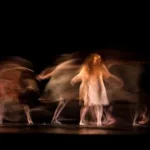- Dreams provide insights into our subconscious mind and can offer guidance in real life.
- The empty stage dream can symbolize loneliness, opportunity, fear of failure, and the desire for attention.
- Different scenarios in the dream, such as standing alone or performing, offer different interpretations of personal growth and self-expression.
- The empty stage dream’s meaning and symbolism vary across cultures and religions, emphasizing concepts of missed opportunities, introspection, spiritual purpose, and detachment from worldly desires.
The empty stage dream can leave one feeling perplexed and unsure. Such dreams carry potent symbolism that can serve as a guiding force in real life. Let’s delve into the interpretation and analysis of the empty stage dream, along with cultural and religious interpretations.
Understanding Dreams

Dreams are a fascinating and mysterious aspect of our lives. They provide us with a glimpse into the depths of our subconscious mind, where our thoughts, desires, and fears reside. Understanding dreams can give us valuable insights into ourselves and help us navigate our waking lives more effectively. In this section, we will explore the general information about dreams, the different types of dreams, common dream symbols, and the importance of dream interpretation.
1. General Information about Dreams
- People spend approximately one-third of their lives sleeping, and during this time, they experience various states of consciousness, one of which is dreaming.
- Dreams occur during the rapid eye movement (REM) stage of sleep, which is characterized by rapid eye movements, increased brain activity, and vivid dreaming.
- Scientists believe that dreams serve several purposes, including information processing, memory consolidation, problem-solving, emotional regulation, and self-reflection.
- While some dreams may appear illogical or bizarre, they often contain hidden meanings and symbolism that can offer valuable insights into our thoughts, emotions, and experiences.
2. Different Types of Dreams
Dreams can be categorized into different types based on their characteristics and the experiences they offer. Here are some common types of dreams:
- Lucid Dreams
Lucid dreams occur when the dreamer is aware that they are dreaming. In lucid dreams, the dreamer can often control or manipulate the dream content. - Nightmares
Nightmares are intense and disturbing dreams that evoke feelings of fear, anxiety, or terror. These dreams often wake the dreamer up in a state of distress. - Recurring Dreams
Recurring dreams are those that occur repeatedly over a period of time. These dreams often feature similar themes, events, or characters. - Prophetic Dreams
Prophetic dreams are believed to contain messages or insights into future events. While not scientifically proven, many people claim to have experienced prophetic dreams. - False Awakening Dreams
False awakening dreams occur when the dreamer dreams of waking up but remains in a dream state. These dreams can be confusing and disorienting.
3. Common Dream Symbols
Dreams are often filled with symbolism and hidden meanings that can be interpreted in different ways. Here are some common dream symbols and their possible interpretations:
- Water
Represents emotions, creativity, and the subconscious mind. - Animals
Can symbolize different qualities such as strength, loyalty, or intuition. They may also represent our primal instincts. - Death
Symbolizes the end of a phase or the fear of the unknown. It can also represent rebirth and transformation. - Flying
Often represents freedom, liberation, or a desire to escape from a difficult situation. - Money
May indicate our self-worth, financial concerns, or our desires for material wealth. - Empty Spaces
Can symbolize a sense of loss or emptiness, or the potential and possibilities that have yet to be realized. - Teeth
May signify power, communication, or a fear of aging or losing control.
It’s important to note that dream symbols can have different meanings for different individuals and can be influenced by personal experiences and cultural backgrounds.
By exploring these types of dreams and understanding the symbolism behind them, we can gain a deeper understanding of ourselves and the experiences we encounter in our waking lives.
Interpretation and Analysis

Dreams have long captivated and intrigued us, holding hidden meanings and symbolism that can guide us in waking life. One particularly striking dream is the empty stage dream, where we find ourselves standing or performing in front of an audience, but the stage is devoid of any props, actors, or spectators. In this section, we will discuss the interpretation and analysis of the empty stage dream, exploring its meaning and symbolism, as well as the scenarios that commonly occur in this dream.
1. The Meaning and Symbolism of the Empty Stage
The empty stage dream holds rich symbolism and can evoke a variety of emotions and interpretations. Here are some key elements to consider when deciphering the meaning of an empty stage dream:
- Loneliness
Standing on an empty stage can generate feelings of loneliness or isolation. The absence of actors or an audience emphasizes a sense of being alone and overlooked. This may signify a period of social disconnection or a feeling of being left out in your waking life. - Opportunity to Shine
Conversely, an empty stage can also represent an opportunity to showcase your talents and skills to the world. It provides a blank canvas where you can freely express yourself without any distractions or limitations. It signifies a chance to step into the spotlight and make a lasting impression on those who witness your performance. - Fear of Failure
The empty stage dream may also reflect a fear of failure and apprehensions about being judged by others. The stage symbolizes public exposure, which can be intimidating if you are afraid of making mistakes or falling short of expectations. It serves as a reminder to confront these fears and take calculated risks to achieve your goals. - Desire for Attention
The empty stage dream may indicate a deep desire for attention or recognition from others. You may be seeking validation for your talents or accomplishments, longing for others to acknowledge your worth. It is essential to examine your underlying motives and focus on building self-confidence and self-worth rather than relying solely on external validation.
2. Scenarios in the Empty Stage Dream
Empty stage dreams can manifest in various scenarios, each offering unique insights into your subconscious desires and fears. Here are some common scenarios that occur in empty stage dreams and their possible interpretations:
- Standing on an Empty Stage Alone
This scenario often represents a sense of directionlessness or uncertainty in your waking life. The empty stage signifies a blank canvas waiting to be filled, yet you may lack inspiration or clarity to pursue your goals. It may also reveal a need for introspection and self-reflection, as the stage offers a space to confront your thoughts and emotions without distractions. - Performing on an Empty Stage
If you find yourself performing on an empty stage without an audience or props, it can symbolize a feeling of being overlooked or unappreciated. You may desire recognition for your talents or achievements, but fear rejection or judgment from others. It can also indicate the need for practice and preparation before showcasing your abilities to others. - Watching Someone Perform on an Empty Stage
Observing someone perform on an empty stage can evoke feelings of inspiration or envy. It may signify a need for fresh ideas or perspectives in your own life, urging you to seek out new experiences or connections. Alternatively, envy may arise if you feel inadequate compared to others and constantly compare yourself to their achievements. - Empty Stage with Props and Costumes
An empty stage adorned with props and costumes can represent both challenges and opportunities in personal growth and self-expression. The props symbolize the roles and identities we assume in our daily lives, influenced by external expectations and pressures. The empty stage invites us to question these roles, identify our authentic selves, and explore new possibilities.
3. Psychological and Emotional Implications
The empty stage dream carries psychological and emotional implications that can shed light on your innermost desires and fears. Understanding these implications can lead to personal growth and self-awareness. Here are some psychological and emotional aspects to consider when analyzing the empty stage dream:
- Self-Esteem and Confidence
The empty stage dream often reflects feelings of low self-esteem, fear of failure, or a lack of confidence in your abilities. It highlights the need to build inner strength and overcome self-doubt, replacing negative self-talk with positive affirmations. Embrace the opportunities for growth and success that come with stepping onto the empty stage. - Identity and Authenticity
The empty stage dream prompts you to explore your true identity and question the roles you play in your daily life. It encourages self-reflection and introspection, urging you to distinguish between external expectations and your genuine passions and desires. Embrace your authenticity and prioritize self-discovery to live a more fulfilling life. - Fear and Anxiety
The fear of failure, judgment, or rejection often manifests in empty stage dreams. This fear can hold you back from pursuing your goals and embracing new opportunities. The dream serves as a reminder to confront these fears, take calculated risks, and learn from setbacks. Embrace the unknown and harness the strength within you to overcome anxiety. - Desire for Connection
The empty stage dream may also signify a desire for connection, recognition, or acceptance from others. It highlights the importance of fostering genuine relationships and seeking support from loved ones. Cultivate a sense of belonging and focus on building meaningful connections that nourish your emotional well-being.
The empty stage dream holds significant meaning and symbolism that can provide valuable insights into your subconscious thoughts, desires, and fears. By analyzing the scenarios, emotions, and psychological implications of this dream, you can better understand your inner landscape and navigate the challenges and opportunities that come your way.
Cultural and Religious Interpretations

Dreams hold significant meaning and symbolism that can vary across different cultures and religious beliefs. The dream about an empty stage is no exception. In this section, we will explore the cultural and religious interpretations associated with empty stage dreams, offering insights into how different societies understand and interpret this intriguing dream symbol.
1. Cultural Understanding of Empty Stage Dreams
- American Culture
In American culture, the empty stage dream is often seen as a representation of missed opportunities or unfulfilled potential. It can reflect a sense of longing or dissatisfaction with one’s current circumstances, prompting individuals to seek out new experiences or take risks to achieve their goals. - Eastern Culture
In Eastern cultures such as Chinese and Japanese, the empty stage dream can be interpreted as a symbol of humility and self-reflection. It suggests the need for introspection and self-evaluation, encouraging individuals to examine their actions and motivations in order to find a path that aligns with their true selves. - African Culture
In various African cultures, the empty stage dream is often seen as a message from ancestral spirits or deities. It may signify a calling or a higher purpose that the dreamer must fulfill. The empty stage represents a space where the individual can connect with their spiritual essence and receive guidance on their life journey. - Native American Culture
In Native American culture, the empty stage dream can be viewed as an invitation to enter into a sacred space for vision quests or spiritual revelations. It represents a time of solitude and introspection, providing an opportunity for individuals to connect with nature and receive messages from the spirit world.
2. Religious Interpretations of the Dream about the Stage
- Christianity
In Christianity, the empty stage dream may be interpreted as a symbol of spiritual emptiness or a lack of fulfillment in one’s relationship with God. It can serve as a reminder to seek a deeper connection with one’s faith and the divine, and to pursue a life aligned with spiritual purpose. - Islam
In Islam, the empty stage dream can be seen as a reflection of the dreamer’s desire for recognition or success in their worldly endeavors. It serves as a reminder to prioritize one’s intentions and actions, seeking fulfillment through acts of kindness, charity, and devotion to Allah. - Buddhism
In Buddhism, the empty stage dream can represent the impermanence of life and the desire for liberation from suffering. It encourages individuals to detach themselves from worldly attachments and desires, focusing instead on cultivating inner peace and enlightenment. - Hinduism
In Hinduism, the empty stage dream can be interpreted as a symbol of self-realization and the pursuit of spiritual enlightenment. It signifies a call to renounce worldly desires and distractions in order to achieve union with the divine self or higher consciousness.
3. Common Symbols and Meanings in Empty Stage Dreams
Dream symbols are often universal and can convey similar meanings across different cultures and religions. Here are some common symbols associated with empty stage dreams and their interpretations:
| Symbol | Meaning |
|---|---|
| Empty stage | Represents missed opportunities, unfulfilled potential, or a sense of longing for something more |
| Audience | Symbolizes the presence of others or societal expectations that may influence the dreamer’s actions |
| Props and costumes | Reflects different roles or personas that individuals may adopt in their waking life |
| Lights and curtains | Signifies transitions or upcoming changes in the dreamer’s life |
| Sound of applause | Represents recognition, validation, or a desire for approval from others |
| Feeling of loneliness | Signifies isolation, disconnection, or a need for deeper connections with others |
| Fear of failure | Indicates anxiety, self-doubt, or a fear of not meeting expectations or reaching goals |
| Desire for attention | Reflects a longing for recognition, validation, or a need to be seen and acknowledged by others |
| Opportunity to shine | Symbolizes a chance to showcase one’s talents, skills, or abilities in front of others and make a lasting impression |
It’s important to remember that dream symbols and their interpretations can vary depending on the individual’s cultural background, personal experiences, and emotions associated with the dream. It’s always best to reflect on your own unique connection to these symbols and consider how they resonate with your own waking life circumstances.
Conclusions
So next time you wake up from a dream where you find yourself on an empty stage, don’t dismiss it as just another random occurrence of your subconscious mind. Instead, take a moment to reflect on the emotions you felt during the dream, the people or objects that appeared in it, and the overall situation you found yourself in. Consider what your empty stage might represent in your waking life and what lessons you can learn from it. Regardless of its cultural or religious interpretation, this dream can still serve as a powerful reminder of our desire for self-expression and spiritual fulfillment. So embrace the insights that your empty stage can provide and use them to bring more meaning, purpose, and creativity to your real-life performances!










Leave a Reply